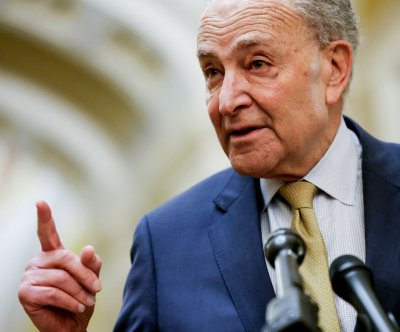Just hours prior to a looming shutdown deadline, the Senate made a decisive move on Friday by approving a $460 billion package of bills aimed at keeping numerous government agencies operational through September.
With a vote of 75-22, Senators passed the comprehensive six-bill package on Friday evening, paving the way for it to reach President Joe Biden’s desk for final approval. The package encompasses funding for various key departments including Veterans Affairs, Agriculture, Interior, Transportation, Housing and Urban Development, Justice, Commerce, and Energy, among others.
Earlier in the week, the House had given its approval to the bill with a significant margin, passing it in a vote of 339-85 on Wednesday.
“Tonight the Senate has reached an agreement avoiding a shutdown on the first six funding bills,” declared Senate Majority Leader Chuck Schumer, expressing relief before the vote. “We will keep important programs funded for moms and kids, for veterans, for the environment, for housing, and so much more,” he added.

Senate Approves $460 Billion Spending Bill, Averts Government Shutdown Hours Before Deadline (Credits: The New York Times)
Despite the bill’s eventual passage in the Senate, it encountered hurdles from Republican members who sought amendments on contentious issues like immigration. Any proposed amendment would have necessitated sending the bill back to the House, where it would likely face challenges, given that the lower chamber had adjourned for the weekend, thereby increasing the risk of a government shutdown.
In an effort to navigate past these obstacles, Senators arrived at a consensus to vote on several proposed amendments. However, none of these amendments succeeded in gaining traction.
Notwithstanding these challenges, Republicans highlighted some victories within the approved spending, notably securing cuts to allocations for agencies such as the FBI, Environmental Protection Agency, and Bureau of Alcohol, Tobacco, Firearms and Explosives.
The legislative process, however, is far from over, as lawmakers are still confronted with a looming deadline of March 22 for the remaining six full-year spending bills. These bills will cover critical areas such as the departments of Defense, Homeland Security, and Health and Human Services, underscoring the ongoing challenges facing Congress in ensuring the government’s uninterrupted operation.























